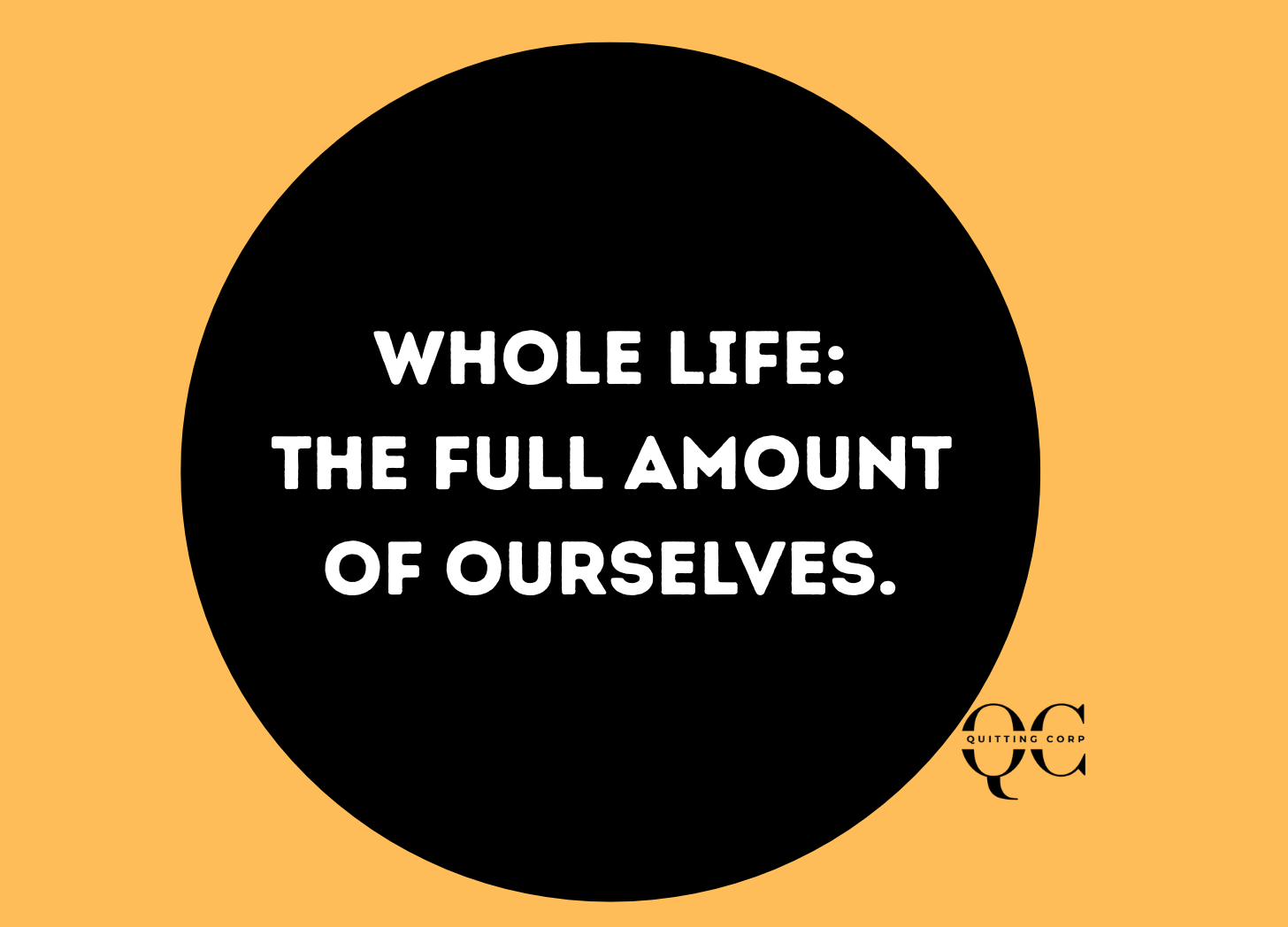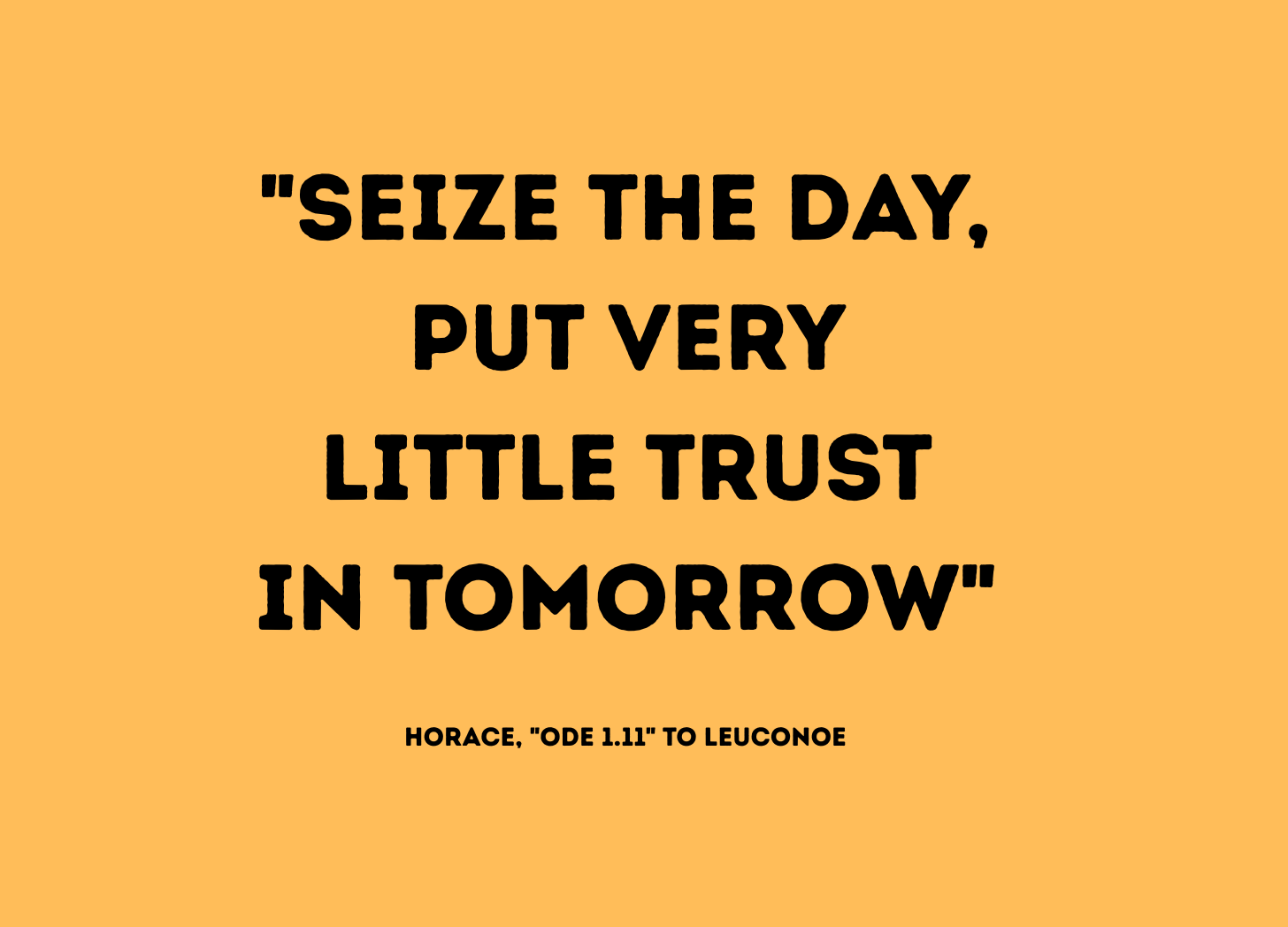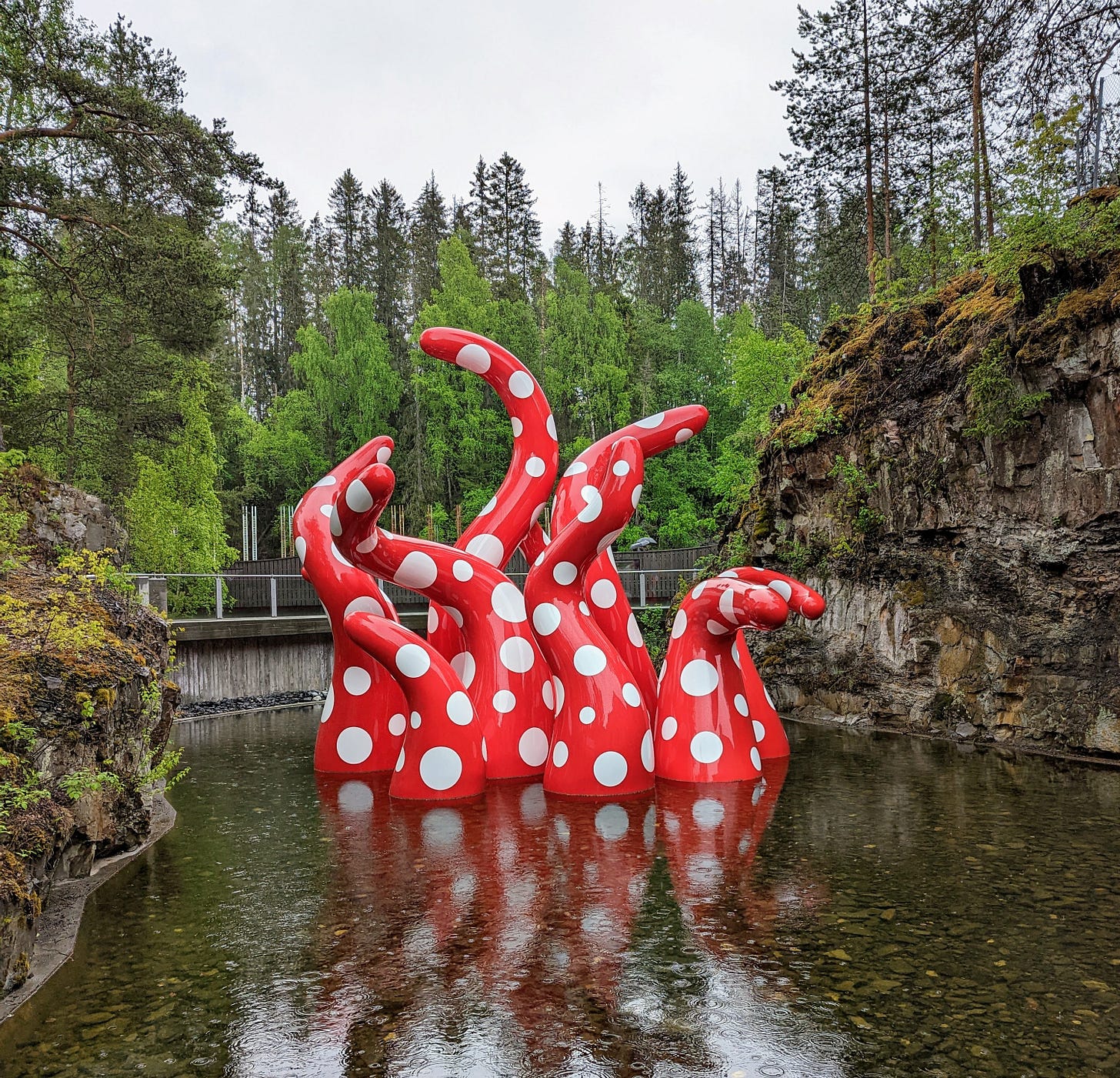Get Off the Time Script
... And Onto a Gloriously Messy & Out Of Step With the Clock Whole Existence
Wholeness evokes completeness, but some "whole" things are better than others.
Take whole bread made with flour from grains that include all parts of the kernel: the bran, germ, and endosperm (I had to look it up). Better than white bread. Whole milk, on the other hand, has seen better days, though it may be making a comeback. "Bringing your whole self to work?" Worked great in the heydays of tech. You could show up as you were, and they'd value you for it. Today, not so much.
But whole life? That refers to a type of insurance policy.
If 'whole life' were a term that we applied to how we live our lives rather than to how many years our lives span, it'd imply a well-lived existence.
But we don't think of our lives as whole or skim. Why not?
The Age-Old Script
Our age plays the leading role in defining who we are.
Childhood is for learning and play.
Adulthood is for building careers, raising families, and accumulating wealth.
Later life is for winding down, leisure, and perhaps grandkids.
It's a widespread script in the stories we tell, our family histories, and how we design our work lives: we chase milestones, and when we don't hit them, we shame ourselves for being off track.
This newsletter is guilty, too: I've written about life and careers as being composed of chapters or seasons. In "Career Chess: 7 Moves to Design Work You (Actually) Love," I asked you to embrace "career seasons." In "The Anatomy of a Work BreakUp," Stage 10 happens when a “layoff becomes just another chapter in your story."
Chapters in a Whole Story
We are inexorably connected to time: its passage changes us in every way – physically, intellectually, and spiritually. Framing snapshots of our previous and future selves as chapters is great for narrative building. We say, "I had a hard childhood," or "in my teens, I was a star [fill in the blank] with so much promise." When looking forward, we may say, "I can't wait to travel all over when I retire."
The Roman poet Horace used the phrase "carpe diem" in 23 BC in an Ode to Leuconoe, thought to be an educated woman prone to excessive speculation about the future.
The full stanza reads “carpe diem, quam minimum credula postero.” It translates to "Seize the day, put very little trust in tomorrow (the future)".
Instead, we put too much trust in tomorrow.
When we are fed up with how things are, we say, "Tomorrow can't come soon enough!" We delay change until after a good night’s sleep or until January, when we can make New Year's resolutions for a better self.
In the whole life way of looking at it, yesterdays become more relevant than todays or tomorrows.
It's not about procrastination – for even a good day spent procrastinating can be a wonderful thing. It's about subverting our expectations of time from what else will happen to what I will make happen because of who I am. What I can make happen.
[K]Now You: Going off The Time Script
The risk of demanding that our lives make chronological sense is missing out on echoes, turnarounds, and overlaps. Why not take a part of ourselves and redo it? Why not go on brave excursions into territory that doesn't make sense?
I can think of a woman I admire who had two kids when she was 50 because she married late. I think of the founder of Summly: he was 15 when he started his company. Seventeen, when he sold it for 30M. Or the I'm-just-another-dot-in-the-world painter Yayoi Kusama, who is 96! When I first encountered her bold and colorful work, my first thought of her was youth.
We prefer whole bread, which is healthy, and dislike whole milk, which is unhealthy, because we were sold on those two ideas.
If I were writing a commercial to sell you on the whole life concept, the tagline would be: Live Your Whole Life Now.
I would portray it as a good thing by telling you the story of one person who allowed old dreams to return and did something about it. Scene #1: a somewhat out-of-focus person as they walk away from an orderly world into a gloriously messy room, with every chapter, season, failure, and success, memory, and forgotten passage of their life scattered about.
They sit down. Get comfortable. In the final scene, they are in full focus again.
I want that to be me. And I want it to be you.
P.S.: Through the end of the Northern Hemisphere summer, I will continue to post every other week.





